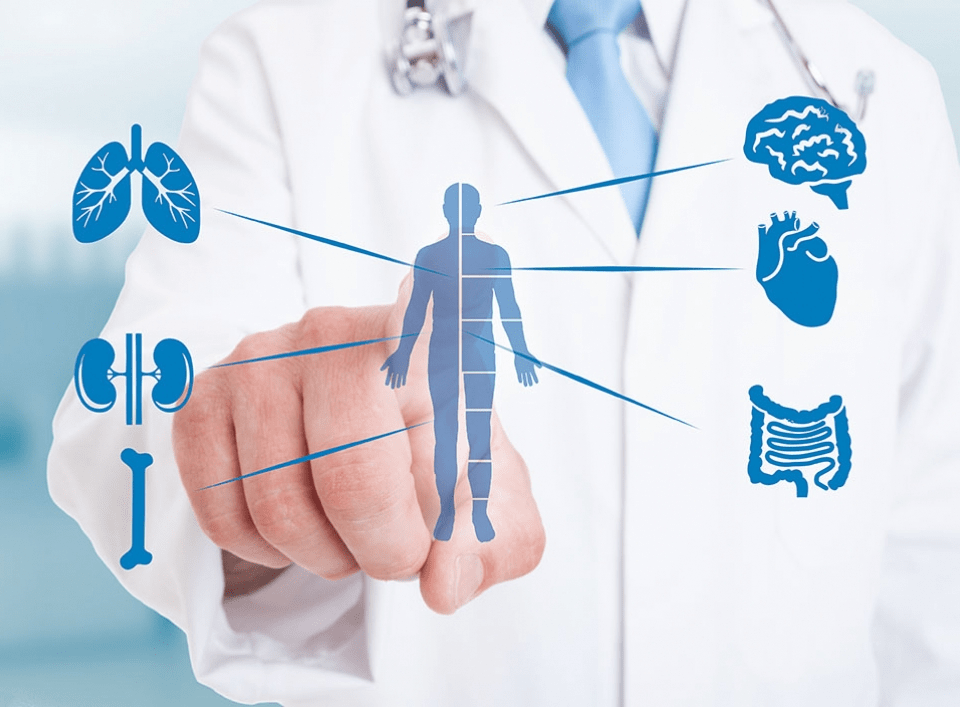
WE SPECIALIZE IN WOMEN’S HEALTHCARE
December 16, 2019
BEAUTY AS A SYMPTOM OF COHERENT HARMONY ™
December 16, 2019By Dushyant Viswanathan, MD
Medical Director, The Columbia Center for Integrative Medicine
INTRODUCTION
As a medical doctor, I am seeing an increasing number of people who come to me complaining of symptoms which are caused by hormone imbalances. There are countless explanations for this epidemic in hormone imbalances- some point at poor nutrition, poor soil quality, high stress, poor lifestyles, etc; regardless of the fundamental cause (a topic for another article), what is clear is that hormone imbalances are a major cause of illness.
For example, diabetes is a complicated illness originating from hormone imbalances related to the small intestine, and later from insulin resistance. Obesity is related to leptin resistance. Both insulin and leptin are very important hormones. Hypothyroidism is very common; most women over age 60 have some degree of thyroid dysfunction. Adrenal insufficiency is very common; many people who complain of chronic pain and fatigue have inadequate cortisol levels, which can impair immune function, and ultimately lead to worsened thyroid function. Vitamin D deficiency is a rampant epidemic recently. Low testosterone in the setting of high estrogen levels is very common in men and is the likely cause of the epidemic of prostate cancer in older men. All of these hormone dysfunctions, if untreated, lead to weight gain, early arthritis, poor endurance, all of which ultimately lead to life-threatening issues such as atherosclerosis (clogged arteries) and cancer.
As a result of my comprehensive hormone testing and balancing program at The Columbia Center for Integrative Medicine, my patients experience improved health, weight loss, improved brain function, increased exercise capacity, better sleep, and are consequently equipped to exercise, handle stress, eat healthy, lower inflammation via healthy lifestyles. Many have returned from disability back to work. Absolutely none of the patients enrolled in our program have had worsened health or side effects of therapy.
PHYSIOLOGY AND BIOCHEMISTRY ARE RELEVANT
Is there a mystery to all this? Some mystic explanation for this approach to clinical medicine? Absolutely not. Integrative physicians, and many naturopaths are deeply interested in basic physiology and biochemistry. The clinical goal is the restitution of optimal physiology and cellular metabolism. When such a situation is achieved, health is improved, symptoms are lessened, and quality of life is enhanced. This is a basic principle to all healing systems throughout the world, since Galen and Hippocrates.
Medical school did well to teach physicians pathology, the specifics of disease states, and the science of pharmacology. These are all essential. However, to provide high-quality clinical care to people in the community, it is essential for physicians to be trained (as I was) in clinical nutrition, biochemistry, and physiology, to better understand how concepts such as cellular metabolism are relevant to the patient seen in the office. Basic medical training plus integrative training leads to high-quality service.
HORMONE SYSTEMS ARE INTER-DEPENDENT
All too often I have people come to me complaining of having ongoing symptoms of hypothyroidism despite being on high dose Synthroid (Levothyroxine), which is synthetic free T4 (inactive thyroid hormone). These patients are seen by physicians who do not test for adrenal insufficiency, who do not aggressively titrate up Vitamin D levels, who do not have formal weight management programs, who do not treat nutrition with much importance, and who do not check the free T3 level (measurement of active thyroid hormone). As a result, the patients have ongoing symptoms. A large percentage of people in my hormone balancing program have come to me frustrated by the lack of thorough care from their endocrinologists and primary doctors.
A major contributing factor to this discrepancy in clinical care is an ongoing, aggressive paradigmatic difference between endocrinologists and integrative physicians. Endocrinologists generally treat thyroid physiology, estrogen metabolism, adrenal physiology, and insulin resistance as clinically separate issues. This is likely because pharmaceutical drug management of these issues requires this ideological stance. For example, there is a drug (Synthroid) for hypothyroidism and another drug (insulin) for diabetes. The paradigmatic emphasis on pharmaceutical treatment prevents endocrinologists from piecing together seemingly disparate aspects of hormone physiology into a syncretic whole.
Whereas integrative physicians such as myself see the various hormone systems as mutually inter-dependent and inter-connected. This approach is substantiated by basic human physiology and biochemistry. For example, cholesterol is the precursor to all steroid hormones. If you drop cholesterol levels, you will drop Vitamin D levels, which will precipitate insulin resistance (leading to diabetes) because of the importance of Vitamin D in regulation of cellular metabolism. Consequently, recent clinical trials have revealed that statin drugs put people at risk of developing diabetes. Another example- impaired cortisol secretion (demonstrable by saliva testing of cortisol) will lead to a drop in progesterone levels (because progesterone will be shunted into the pathway to make more cortisol), leading to elevated unopposed estrogen levels; this relative increase in estrogen will increase thyroid-binding globulin, which will bind thyroid hormone, taking it away from physiologic roles, leading to a measurable decrease in blood thyroid hormone levels, leading to hypothyroidism and its symptoms. This is basic physiology. Consequently, as part of a thorough hormone workup, it is important to check Vitamin D, estrogen, progesterone, testosterone, cortisol, free T3, free T4, and hemoglobin A1C levels. When all of these different hormones are balanced, people feel better and are better equipped to exercise, eat healthy, manage stress, and achieve peace of mind as a result of their mindful lifestyles and attitudes.
DIAGNOSIS
After a comprehensive history and physical exam, testing is mandatory. This is because one cannot simply guess about hormone status, and which hormone imbalance is causing which particular symptom. The basic principle for hormone testing is as follows:
- Water-soluble hormones (25-OH Vitamin D and thyroid hormone) are well measured in blood since they are freely circulating in blood
- Lipid-soluble hormones (that derive from cholesterol) are well measured in urine and/or saliva since binding proteins carry them in blood, and so blood levels aren’t accurate. More recent assays for unbound levels of steroid hormones may make up for this discrepancy. However plentiful evidence indicates that saliva testing is accurate, specific, and sensitive, and conveys more accurate information about HPA axis physiology than does blood testing (Clinical Endocrinology Volume 63, Issue 3, pages 336–341, September 2005)
TREATMENT
Treatment for hormone imbalances firstly emphasizes lifestyle. Generally, I begin by advocating a micronutrient-dense no-glycemic diet that lacks gluten and dairy, tailored to the palate of the patient, and I have my nutritionist work closely with the patient to address meal plans. Weight loss programs are useful as well because close supervision makes it easier for people to achieve their goals. I use the Ideal Protein program or Transitions Lifestyle System, both of which are predicated on the same principles of no-glycemic food intake.
Next, I make use of an exercise therapy (ET) program that is based on the principle of interval training. My ET program can be billed through physical therapy, and is very effective and enjoyable for patients at CCIM; they don’t have to join a gym and they can feel protected knowing that medical professionals are monitoring their exercise.
Next I make use of bioidentical hormones compounded by my pharmacist. In Maryland, I work closely with Brian Trentler, chief pharmacist and compounder at Hunt Valley Pharmacy, in Hunt Valley, MD, which is just north of Baltimore. He has 20+ years working with compounded formulations and simply put, my patients love him since he is prompt, is willing to ship formulations to peoples’ home, and is a great teacher.
In addition to bioidentical hormones, I make use of proprietary blends containing glandulars, nutraceuticals, and micronutrients, depending on the clinical situation. For example, B vitamins, melatonin, magnesium, and adrenal adaptogens are useful to treat adrenal disease. Selenium, iron, and iodine are useful to treat hypothyroidism with a low free T3. Pygeum and zinc are useful to treat prostate disease, etc.
DISTINGUISH BETWEEN SYNTHETIC AND BIOIDENTICAL
For those people at risk for breast cancer and who are daunted at the concept of using hormones because of the elevated risk of cancer and heart disease in people using synthetic hormones, it is important to know that there are major biochemical differences between synthetic hormones and bioidentical hormones. They have different effects on the body. For example, synthetic progestin increases the risk for bloating, blood clots, and heart disease, while bioidentical progesterone has no such side effects, and in fact protects people from these issues, just as our own endogenous progesterone protects us from heart disease, bone disease, and blood clots. See references below for more information about this. Please note that only you and your physician can decide what the right treatment for you is. This article is NOT a substitute for customized care tailored to your needs, created by your physician.
PHYSICIAN – PHARMACIST RELATIONSHIP
What is very important is the relationship between the prescribing physician trained in hormone balancing and the compounding pharmacist with experience in creating compounded formulations. I have been working with my pharmacist since the opening of my office, and his professional practice is in harmony with the high quality attention to detail that I expect in my medical practice.
REFERENCES
Could Transdermal Estradiol + Progesterone be a Safer Postmenopausal HRT? A review. L’Hermite M, Simoncini T, Fuller S, Genazzani AR. Maturitas. 2008 Jul-Aug; 60(3-4):185-201.
A review article that compares the use of non-orally administered HRT and advantages to the cardiovascular system compared to the more conventional oral hormones. Further review compares progesterone to synthetic progestins, and finds that their effects are vastly different with respect to breast cancer risk.
Cardiovascular Effects of Medroxyprogesterone Acetate and Progesterone: A Case of
Mistaken Identity? Hermsmeyer RK, Thompson TL, Pohost GM, Kaski JC. Nat Clin Pract Cardiovasc Med. 2008 Jul;5(7):387-95. Epub 2008 Jun 3. Review.
Natural hormone therapy for menopause. Mahmud K. Gynecol Edocrinol. 2009 Aug 19:1-5.
Study of 189 women were administered bioidentical estrogen plus progesterone with or without DHEA and testosterone and followed for 12 months. 97% of women experienced varying degrees of symptom amelioration including improvement in mental symptoms and weight loss. Complications common to traditional HRT were not seen.




